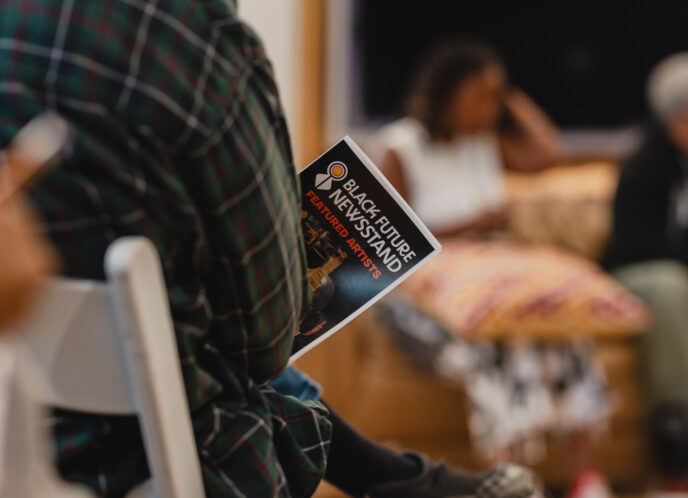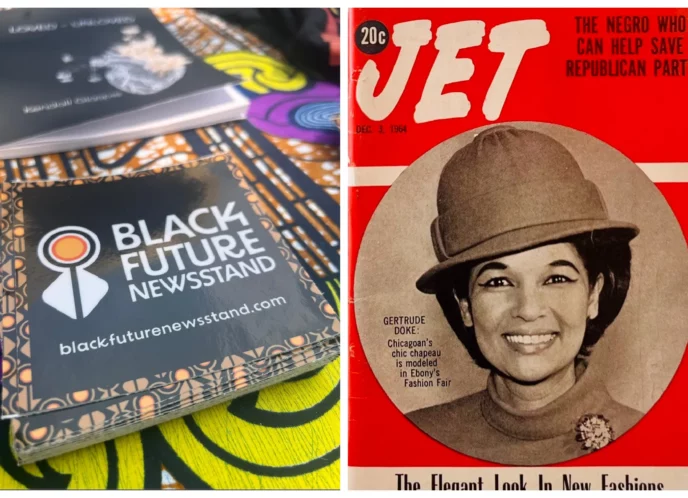The project was a game changer for me. It pushed me out of my comfort zone and challenged me to put into practice the knowledge and skills imparted from the fellowship.
– Nyasha Grace Munangatire
The theme of the 2023 MediaJustice Network Fellowship (MJNF) was racialized disinformation – false information deliberately spread, that uniquely targets and disproportionately impacts communities of color (ex. Voter suppression, deceptive ICE stings, COVID disinformation, etc.). MJNF, which consisted of 8 months of rigorous political education and skill-building, tasked fellows with creating a project inspired by and connected to the fellowship. The result: fellows produced fierce research, analysis, and media that challenges dominant narratives, unearths erased histories, and uplifts and centers community experiences. We are sharing a snapshot of the work fellows did, in two parts. Part 1 below highlights six fellows and part II will highlight the remaining five fellows. We’re honored to be in community with these incredible activists and organizers.
Nyasha Grace Munangatire
Nyasha was nominated for the fellowship by the Highlander Research and Education Center. She is based in South Africa and is part of the Cancel the Debt subgroup of the Global Campaign Against Racism, run by EqualHealth.
Nyasha’s project is a podcast, Cancel the Debt, a series which is part of The Campaign Against Racism podcast! In her own words:
I want to use [the podcast] to expose structural racism and ultimately the devastating impact that debt has on global south countries. There currently is a lot of disinformation about the state that Africa finds itself in which is rooted in the legacies of colonialism and the neo-colonial agenda. Mainstream media is not interrogating these matters sufficiently and so I intend to use my podcast to build a narrative that amplifies the silent struggles of global south countries rooted in structural racism in the pursuit of social justice and socio-economic development.
– Nyasha Grace

Listen to the trailer of her podcast HERE!
Trinity McFadden
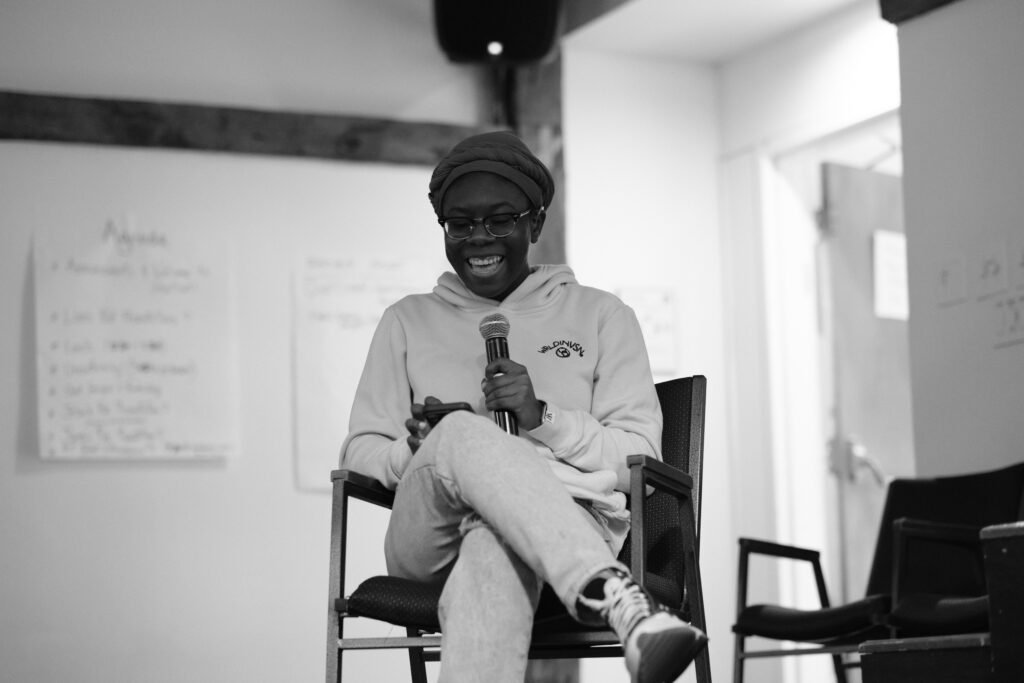
Trinity was nominated for the fellowship by HEARD, a cross-disability abolitionist organization. Trinity’s project is an interactive e-book titled, “Intersections of Identities in Media: A Guide to Combating Racialized Disinformation,” that will serve as “a resource for journalists, media-makers and community, on how disinformation harms black disabled community members, especially when it comes to (deadly) interactions with state-sanctioned violence.” While sharing her project, Trinity stated:
My goal was to find a pattern between lived experiences and media trends.
Trinity’s project includes research that showed “when it came to Black disabled [people] harmed by the state, disability wasn’t mentioned or accurately reported.” One example Trinity shared was media reporting surrounding the murder of Jordan Neely by police. “There were about 6,000 articles on Jordan Neely, and only 1.5% portrayed his disability.” Trinity continued, “The way we talk about disability or not talk about it is actually harming us and [the] media uses that to further erase people’s identities. And anti-disability narratives contribute to racialized disinformation.…I would really love for all of us to recognize that as a community, as media makers, as distributors, we can’t ignore intersectionality in our daily lives, we can’t separate identities. We need to consider that disability is part of our lives and we need to start being honest about it and talk about it. I hope we are accountable to and inclusive of multiply marginalized people, centering them in our work.… As a result of this project, I want to see more dialogue and action to model inclusivity and accessibility with the understanding of how racialized disinformation got us to this point.
The goal is to amplify love, access, inclusion, disability justice.” Consider supporting HEARD today!
Priya Prabhakar
Priya was nominated for the fellowship by [people. power. media]. Priya’s project had three driving questions:
- How is the current state of disinformation in India propping up the right-wing Hindu nationalist regime and how does that impact marginalized communities?
- How is the technology and medium through which disinformation is spread aiding and abetting these campaigns?
- How can we get to the root of the driving forces of disinformation and educate our family and community members to counter the spread of disinformation?
Priya’s project tackled these questions through research and conversations with family and community. She created a website, The Underbelly of Disinformation, that includes various case studies highlighting casteist, gendered, Islamophobic, and health-related disinformation, as well as the stakeholders involved in the political economy of disinformation in India. The mass spread of misinformation and disinformation has been dubbed Whatsapp University in India.

(Click the image to visit her site.)
Anne Marie Collins
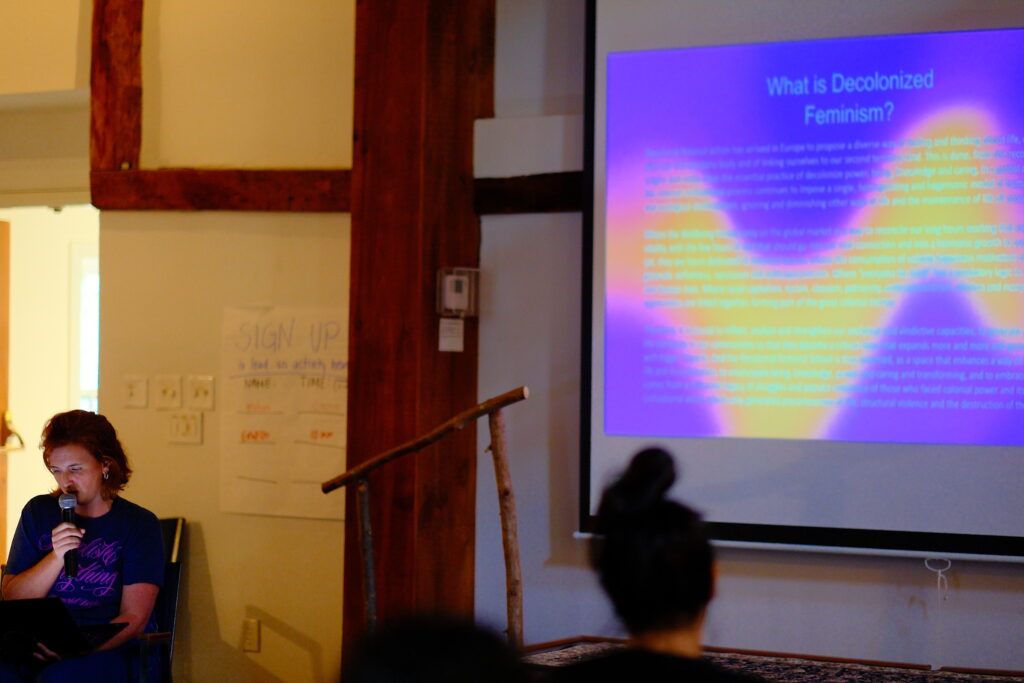
Anne Marie was nominated for the fellowship by the Highlander Research and Education Center. Anne Marie is based in Barcelona, Spain where she is an organizer for EqualHealth’s Global Campaign Against Racism and for the Red Antirracista. Anne Marie teaches at a decolonial feminist school, and her project was co-creating curriculum for it that uses abolition as a framework for combating disinformation in the struggle against the criminalization of migrants. Anne Marie had the following theory of change: “If we use abolition frameworks in our organization against the migration industrial complex in Spain, then we can start to collectively organize against disinformation, particularly around resources that are spent on criminalization and create more radical demands and praxis in our organizing, for life sustaining structures for all migrant/displaced communities.”
Bria Thurman

Bria was nominated for the fellowship by Urbana Champaign Independent Media Center. Bria comes to her work “as a midwestern Black person, who grew up 30 minutes from Ferguson.” Bria believes in the importance of reconciling histories of genocide and colonization “so that we don’t end up attacking the survivors of these histories instead of holding the perpetrators accountable who continue to benefit from this history today.” She is passionate about the concept of culture in terms of “how we build and maintain community, how we remember ourselves and our history, and how we relate to one another.” Bria’s project is a short documentary that uplifts the stories of Black organizers from the Urbana Champaign area, how their family backgrounds influence their efforts, how they are reclaiming erased histories, and how organizing affected them.
Claire Nguyen
Claire was nominated by 18 Million Rising (18MR) and is the Communications Coordinator at VietLead, a grassroots organization based in Philadelphia and South Jersey that is creating a vision and strategy for Vietnamese and Southeast Asian self-determination, social justice, and cultural resilience. Claire’s project was creating viewing guides that “complement my organization’s episodic documentary series, Taking Root, that reframes the history of Southeast Asian refugee resettlement in Philadelphia. Each viewing guide expands upon topics explored in the documentary focusing on how neoliberal, anti-Black policies impacted Southeast Asian refugee Philadelphians. The goal of the viewing guides is to provide political education that will agitate 2nd and 3rd generation Southeast Asians to organize against these anti-Black policies and to transform our conditions.”
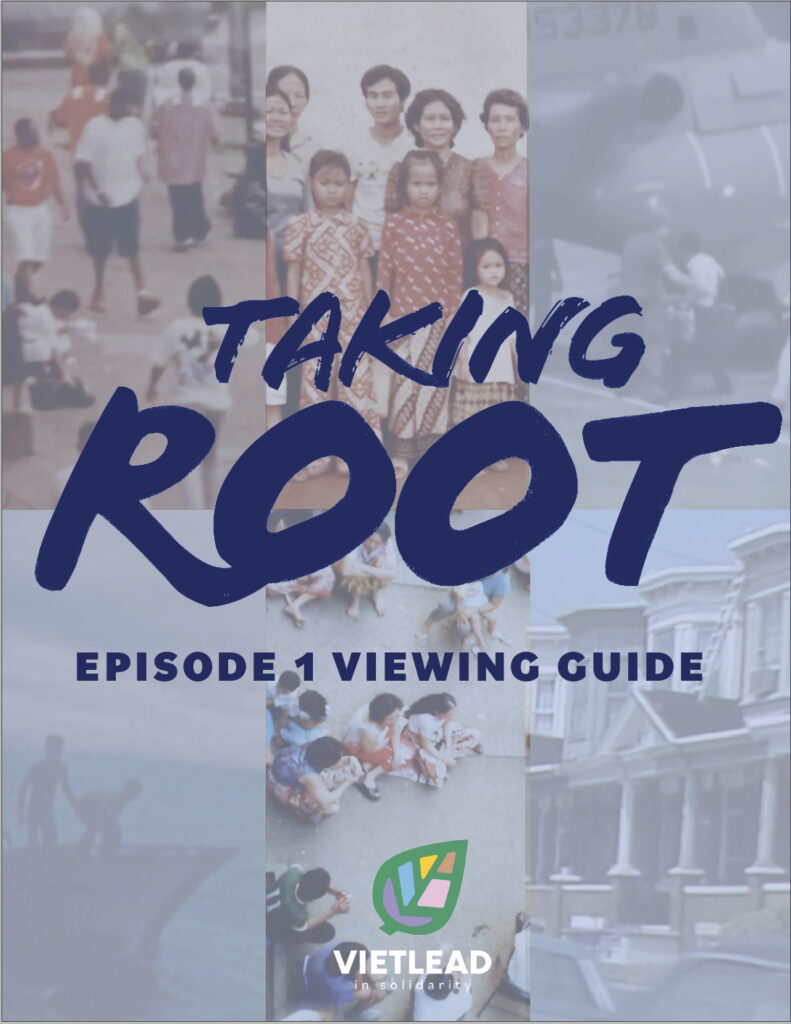
The rigor that fellows applied to these projects is inspiring. Their power comes from the depths of their relationships to community, self, place, and history— and their commitment to liberation.

